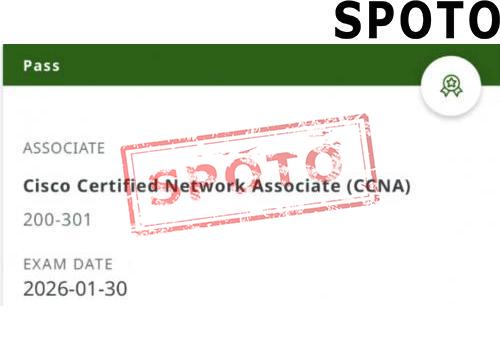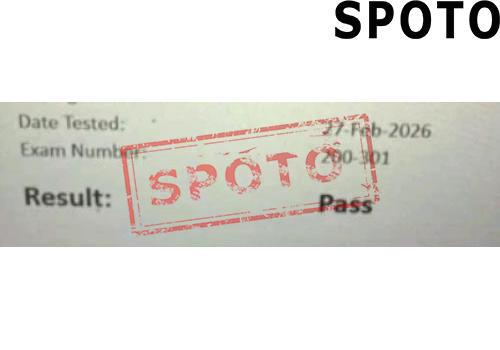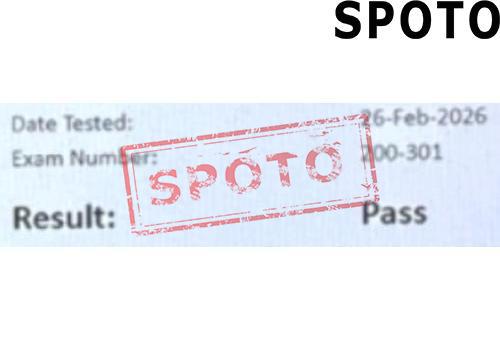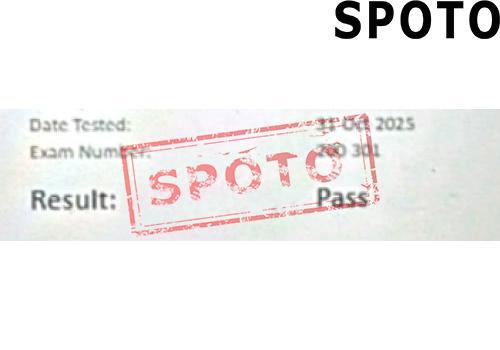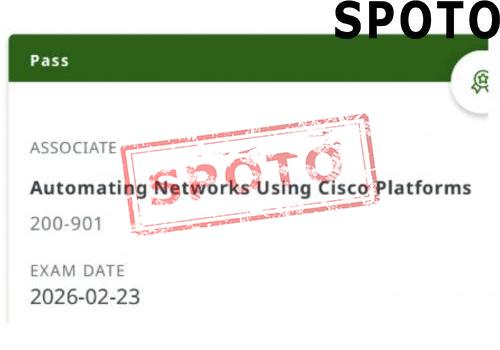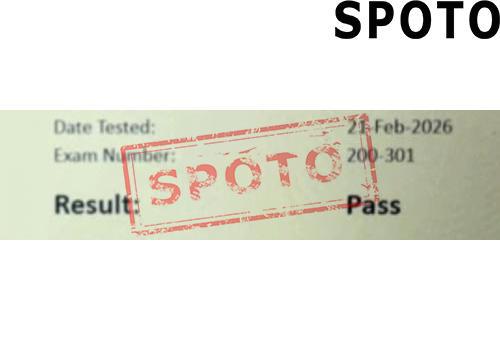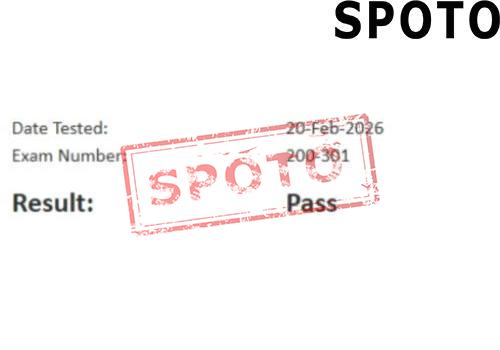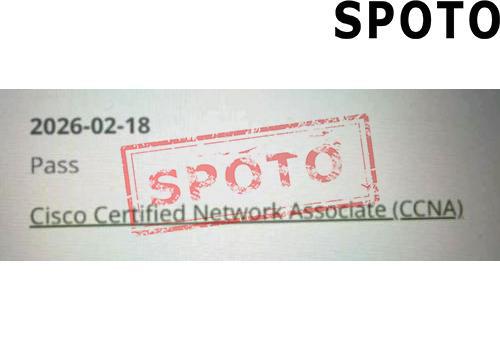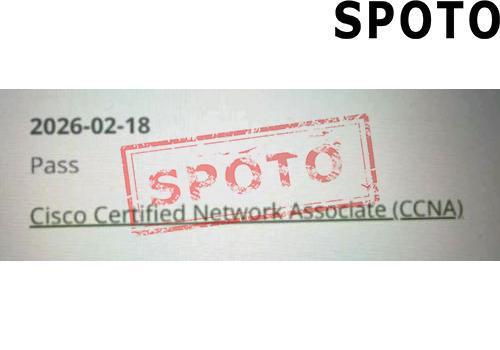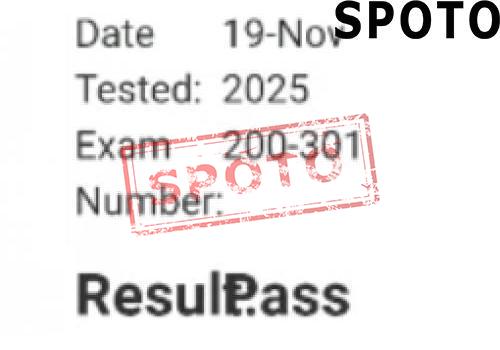
The CCNA (Cisco Certified Network Associate) certification has long been one of the most sought-after entry-level networking certifications in the IT industry. Whether you're planning to kickstart your career in networking or looking to solidify your foundational skills, the CCNA is often the go-to certification. However, with networking technologies continuously evolving, 2026 brings new challenges and changes that aspiring candidates should be aware of.
To ensure success and set yourself up for the CCNA exam in 2026, it's essential to approach your preparation strategically. In this article, we'll walk you through the six key things you should do before attempting the CCNA exam in 2026.
1. Understand the CCNA Exam Objectives
Before diving into your CCNA preparation, it's crucial to familiarize yourself with the updated exam objectives and topics. Cisco regularly updates its certification exams to reflect the latest trends in technology, and understanding what's covered in the exam will help you stay focused on the right areas.
In 2026, the CCNA exam will continue to focus on foundational networking concepts, but it will also incorporate new topics related to network automation, security, and cloud technologies. Some key areas you should review include:
- Networking Fundamentals: IP addressing, subnets, and IPv6.
- Routing and Switching: Basic routing protocols like RIP, OSPF, and VLAN configurations.
- Network Security: Configuring firewalls and secure access protocols.
- Automation and Programmability: An introduction to network automation tools like Python and SDN.
- Wireless Networking: Understanding wireless access points and configuration.
- Cloud Technologies: Basics of cloud computing and Cisco's role in cloud solutions.
By knowing the exam blueprint and areas of focus, you can effectively prioritize your study time and ensure you're well-prepared for the test.
2. Build a Solid Networking Foundation
While the CCNA is considered an entry-level certification, it's important to have a solid understanding of networking fundamentals. These core concepts are the foundation on which all advanced networking topics are built. Without a strong grasp of basic networking principles, it will be difficult to understand the more complex configurations and troubleshooting tasks that are part of the CCNA exam.
Spend time mastering topics such as:
- OSI Model and its layers
- TCP/IP model and protocols
- IP addressing (subnetting and classful addressing)
- Switching concepts (VLANs, STP, and port security)
- Routing basics (static routes, dynamic routing protocols like OSPF and EIGRP)
Having these fundamentals down will give you the confidence to tackle more advanced topics and scenarios on the exam.
3. Get Hands-On Practice
Theory is essential, but practical experience is key to passing the CCNA. Hands-on practice is one of the most effective ways to internalize networking concepts. Setting up your own lab environment will help you practice configuration, troubleshooting, and other practical tasks that are frequently tested in the exam.
Here are a few ways to gain hands-on experience before the exam:
- Use Network Simulators: Tools like Cisco Packet Tracer or GNS3 are great for simulating Cisco devices. These simulators allow you to practice tasks such as configuring routers, switches, VLANs, and routing protocols.
- Set Up a Physical Lab: If possible, setting up a small physical lab with Cisco routers and switches can provide invaluable experience. You can buy second-hand equipment to keep costs down.
- Online Lab Environments: If setting up your own lab isn't feasible, there are online platforms like SPOTO that offer access to virtual labs for CCNA preparation.
The more you practice, the more comfortable you'll become with the real-world tasks and configurations required on the exam.
4. Master Subnetting and IP Addressing
One area that often trips up candidates is IP addressing and subnetting. You'll need to be able to calculate subnets, IP ranges, and the correct subnet masks quickly and accurately during the exam.
In 2026, subnetting will remain a key part of the CCNA exam, and you'll need to be comfortable with:
- Classful and classless IP addressing
- Subnetting IPv4 and IPv6
- VLSM (Variable Length Subnet Masking)
To master subnetting:
- Practice regularly using subnetting worksheets or apps.
- Learn shortcut methods, such as the divide-by-2 method, to speed up your calculations.
- Make sure you're able to apply these concepts in both theory and practical configurations.
Understanding subnetting will give you a strong advantage in the exam and in real-world networking environments.
5. Stay Up-to-Date with Cisco's Latest Technology
Networking technology continues to evolve, and Cisco is no exception. In 2026, expect to see a heavier emphasis on cloud solutions, network automation, and security. As a future CCNA candidate, staying up-to-date with these technological advancements will be beneficial both for your exam and your career.
Key areas of focus for 2026 include:
- Cisco SD-WAN and how it simplifies the management of wide-area networks.
- Network automation tools, including Ansible, Python, and NETCONF.
- Cloud integration with solutions like Cisco Meraki or Cisco WebEx.
Familiarize yourself with these new technologies to ensure you're well-prepared for any questions related to modern networking solutions.
6. Join a Study Group or Online Community
Studying for the CCNA can be a long and challenging journey, but it doesn't have to be a solitary one. Joining a study group or participating in an online community can help you stay motivated, clarify doubts, and get advice from others who are on the same path.
Here's how to make the most of a study group or community:
- Join Cisco Learning Network: This online community has forums, discussion groups, and study resources to help you stay on track.
- Participate in Online CCNA Forums: Websites like Reddit, TechExams, or Cisco Learning Network have active communities where you can ask questions and share study tips.
- Find a Study Partner: Studying with others can help you stay motivated and provide different perspectives on difficult topics.
The CCNA exam requires a lot of preparation, but sharing the journey with others can make the process more manageable and less stressful.
Conclusion
The CCNA remains one of the most valuable certifications for anyone looking to start a career in networking. With the exam changes and technological advancements in 2026, it's important to take a structured approach to your preparation.
Start by understanding the exam objectives, building a strong foundation in networking, and gaining as much hands-on experience as possible. Stay on top of the latest technologies, particularly in network automation and cloud solutions, and find support through study groups or online communities. Finally, practice and prepare until you feel confident in your ability to tackle the exam.
By following these six steps, you'll be well on your way to successfully earning your CCNA in 2026 and launching a rewarding career in networking.
